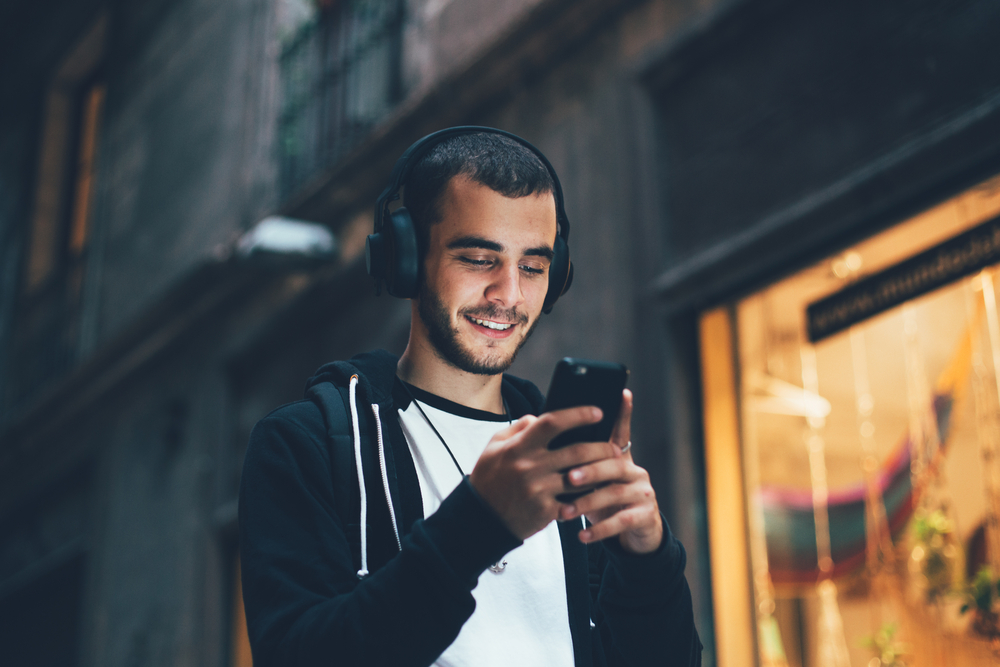
Meet James, an avid music lover who seamlessly integrates Spotify into his work routine, switches over to Pandora during his jogs, and curates playlists for every occasion conceivable, from cardio programs to cooking and even gaming. He’s rarely seen without his headphones, which have become an important part of his day-to-day life, turning every moment into a personalized audio adventure. However, while James gets solace and joy in the immersive world of music, the very thing he treasures could be quietly weakening his priceless sense of hearing.
There are safe ways to enjoy music and ways that are more hazardous to your hearing health. Unfortunately, a lot of us lean towards the second approach.
How does lengthy periods of music exposure lead to hearing loss?
As time pass, loud noises can lead to degeneration of your ability to hear. Hearing loss is commonly linked to growing older, but the latest studies indicate that it is mostly caused by damage from exposure to loud sounds rather than being a natural part of getting older.
Younger people are more sensitive to noise-induced damage as their ears are still in the developmental stage. However, teenagers tend to dismiss the potential hazards of excessive noise over time. So there’s an epidemic of younger individuals with hearing loss, thanks, in part, to widespread high-volume headphone usage.
Is it possible to enjoy music safely?
Unregulated max volume is obviously the” dangerous” way to listen to music. There is a way to enjoy to music more safely, which usually means lowering the volume. The recommended safe volume levels are normally as follows:
- For Adults: No more than 40 hours of listening on a device, and keep the volume below 80 dB.
- For Teens and Minors: You can still listen for 40 hours, but keep the volume level below 75 dB.
Breaking it down, you’re looking at about 5 hours and 40 minutes of listening every day. Though it might appear excessive, the time can go by surprisingly fast. Despite this, the majority of people have a well-developed awareness of time management, a skill that is usually perfected during early childhood.
The more challenging aspect involves tracking your volume level. Devices like smartphones, computers, and TVs usually do not display volume in decibels. It’s assessed on some random scale. The range could be as broad as 1 to 100, or it could be as narrow as 1 to 16. You may be unaware of the maximum volume capacity of your device or how close you are to reaching that limit.
Tips for effectively keeping track of your music volume
Numerous free noise monitoring apps can be downloaded for both iPhone and Android devices to tackle this problem. These apps offer real-time information into ambient noise levels, enabling users to calibrate their music volume accordingly.
For this reason, many audiologists recommend utilizing one of the numerous noise level monitoring applications available at no cost. These widely obtainable apps, compatible with both iOS and Android platforms, provide instant sound-level feedback on the ambient noise around you. In this way, you can monitor the decibel level of your music as it plays and make adjustments accordingly.
A volume comparison: garbage disposals and more
As illustration, 80 dB is approximately equivalent to the noise emitted by a common garbage disposal or dishwasher– audible, yet not excessively loud. Acknowledging this benchmark is crucial, as it represents the threshold beyond which hearing damage becomes a substantial danger.
So, being extra vigilant when surpassing this decibel limit is essential. Think about decreasing your exposure to exceedingly loud music by listening to specific songs at the highest volume rather than listening to entire albums.
Prolonged exposure to loud sounds can lead to hearing issues, including ringing in the ears, or tinnitus, and potentially irreversible damage to one’s hearing. By being mindful of when our ears are at risk, we allow ourselves to make informed decisions in order to promote safer listening habits.
Schedule a hearing exam
For better prioritization of your hearing health, it is advisable to contact a hearing specialist to book a thorough hearing exam. Proactive steps such as routine screenings can detect any possible issues early on, enabling timely interventions and personalized recommendations to protect your vital sense of hearing.